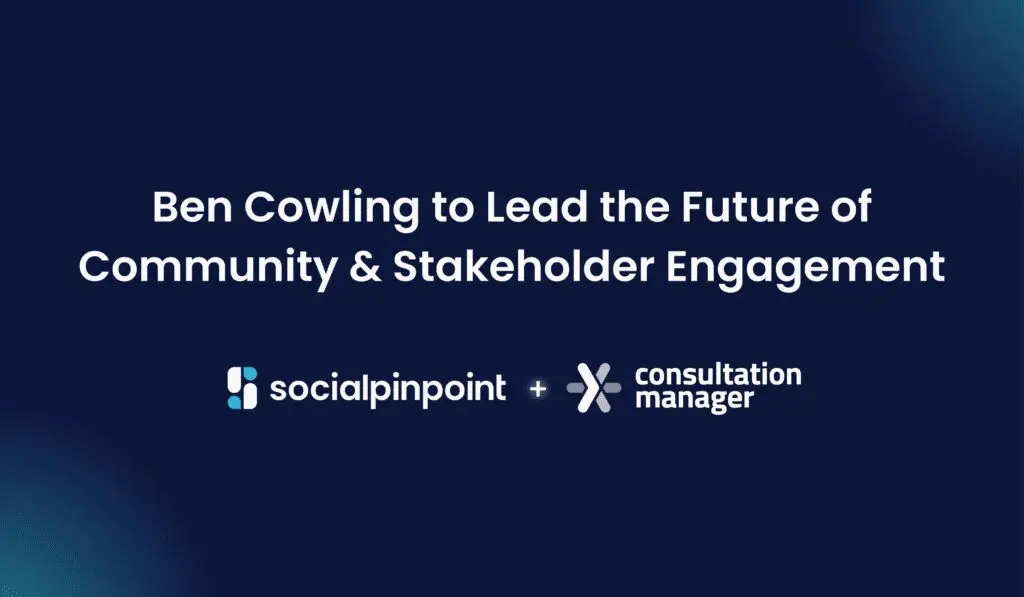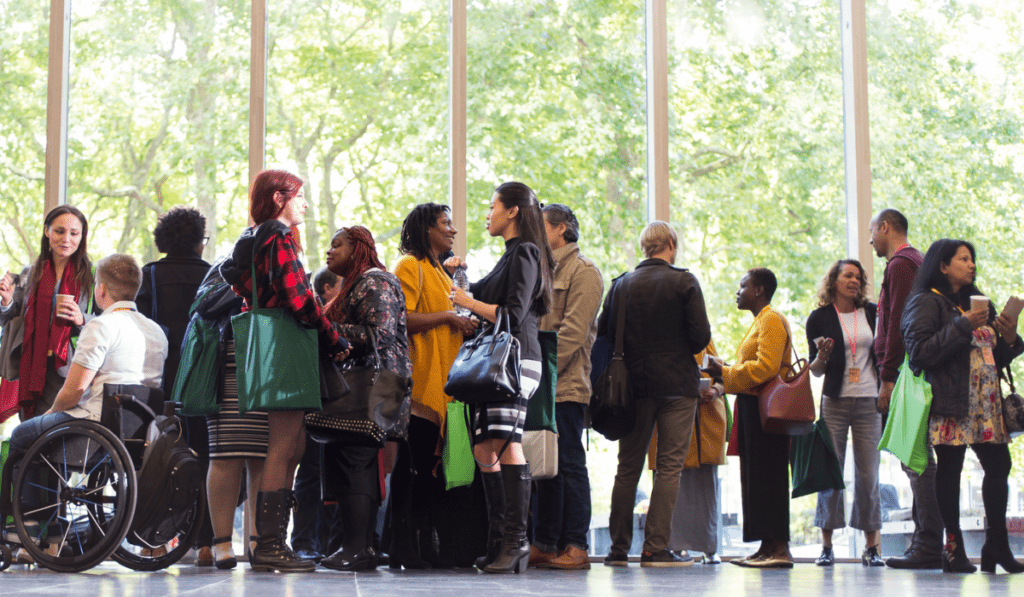Participatory democracy is a model of democracy in which citizens have the power to influence policy decisions.
It emphasizes the broad participation of people in politics and can be used as a tool to address some of the emerging systemic issues that are impacting people’s lives.
In order to acknowledge the relevance of public opinion, civic engagement or citizen engagement are increasingly being introduced at the democratic level to promote transparency and openness. Because of this, understanding the value and benefits of participatory democracy is key. There are three benefits to participatory democracy we will focus on:
- Counter-balancing unequal power
- Dealing with ethical dilemmas and difficult decisions
- Innovation and collective decision making
What is participative democracy?
Participatory democracy occurs when individual citizens are able to influence the policies and political decisions that impact their lives, rather than relying on their elected representatives to make decisions completely on their behalf.
For participatory democracy to be successful, policymakers have to consistently engage with their citizens and be willing to share more information and power. It can be seen in various levels of government, where citizens have multiple access points to influence policymakers and politicians, who then implement decisions.
A well-known example is town hall meetings. Town hall meetings are a great way for local and national politicians to meet with constituents to hear their opinions on topics they are interested in or to discuss upcoming legislation.
There are also a variety of online participatory tools which are used to reach broad groups of people. One example is online participatory budgets, which enable citizens to vote for how they would like public spending to be allocated toward an initiative.
A few of our favorite projects with a focus on participative democracy include:
How is participative democracy different from representative democracy?
The most common kind of political participation in all democracies is the electoral process, in which citizens go to vote, seeking to directly select the people that will represent them in policy making.
Representative democracy relies on the premise that politicians will accurately represent their citizens. Most Western-style democracies, such as the United States and the United Kingdom follow this framework.
However, participatory democracy focuses on ensuring that citizens have further opportunities to be involved in the decisions that impact their lives. It can be used to complement representative democracy, but it does require a cultural shift in our democratic institutions towards transparency, openness, and respect for the relevance of public opinion.
How is participative democracy different from direct democracy?
In a direct democracy, citizens are responsible for voting directly on policies and laws. They are able to make policy decisions, not just influence them. Direct democracy is still used in some small towns to decide on local affairs.
Direct democracy is the complete opposite of representative democracy.
The term participatory democracy refers to somewhere in between. People elect leaders, but also play a role in forming policies.

Why is participatory democracy on the rise?
The global pandemic and restricted liberties have recently challenged the makeup of democracies all around the world, sparking a call for more accountability, transparency, and citizen engagement. As a result, participatory democracy has gained momentum, fueled by a promise to innovate and instill a new way of making collective decisions.
Younger generations are also craving increased participation and want their voices to be heard on the big issues that will impact their lives, such as climate change.
Voting for representatives and proposals is one way in which communities can make trusted decisions, however, there are also other mechanisms in which citizens can express their needs and ideas. Participatory democracy creates the space for people to shape their communities and give governments the opportunity to purposefully meet their needs.
Political campaigning often focuses on controlling the message and some politicians see participatory democracy as a threat.
However, non-participation can be a starting point for unrest, dissatisfaction, and cynicism. The involvement of everyday people is a critical ingredient to making enduring trusted decisions that will benefit society as a whole.
Enabling communities to make informed decisions and be genuinely heard in political processes is also a powerful way to minimize raw and uninformed public opinion. It can also help the community think through solutions that balance short-term incentives with long-term issues.

The benefits of participatory democracy
1. Counter-balancing unequal power
Power imbalances are a reality and special interest groups are often able to advocate strongly for their desired outcomes to have their voice heard.
These opinions should always be counter-balanced with a mandated voice for everyday people from all backgrounds and life experiences.
Inviting new voices that are not from a special interest group or bureaucracy via digital tools and opinion mechanisms gives governments the ability to operate with transparency. This helps create a trusting environment and improves representation in decision making.
2. Dealing with ethical dilemmas and difficult decisions
Policy problems can be tough and often involve difficult decisions. In many cases, raw public opinion stems from the belief that decision-makers have not taken an easy and fair solution that was in front of them.
By giving citizens the space to think about an issue in-depth, they can air their own concerns, but also engage in deeper public thinking. Parliaments can explore the issues that citizens share, while people get to mix with others of all ages and backgrounds, explore opposing beliefs, and find a common ground.
Letting go of control and enabling people to explore the trade-offs for themselves is powerful. It helps people to respond with an informed view and shifts the paradigm from public opinion to public thinking.
Done well, participatory democracy brings together a diverse mix of everyday people who will be willing to stand alongside those in government and advocate for a decision. It de-risks decision-making by enabling governments to share problems, rather than trying to sell a single solution.
More diverse and representative groups of people engaged in conversations.

3. Innovation and collective decision making
Given their local knowledge and lived experiences, a community can have a more accurate perspective on an issue than the government. Participatory democracy gives policymakers the opportunity to:
-
Listen more broadly to the community
-
Gather more information
-
Come up with more robust and resilient solutions.
If governments can create dynamic learning ecosystems with their communities, they will have more diverse and representative groups of people engaged in conversations. The increased exposure to new ideas may even help governments make ask new questions that they haven’t thought of yet.
Technology can also foster broader conversations in a digital space and provide wider data sets, helping decision-makers to connect past learnings with new ideas to inform better decisions for the future.
How can we foster participatory democracy?
In order for participatory democracy to work, the ability to shape the future needs to become baked into the community psyche. Governments need to create space for citizens and organizations to voice their opinions while demonstrating effective outcomes to the community so that they trust that their input makes a positive difference.
Governments need to engage people in decisions consistently, considering who needs to be involved, for what purpose, and at what level. Representative groups also need to be given the tools to understand the content of the debate and given equal access through a variety of engagement methods to express their views.












